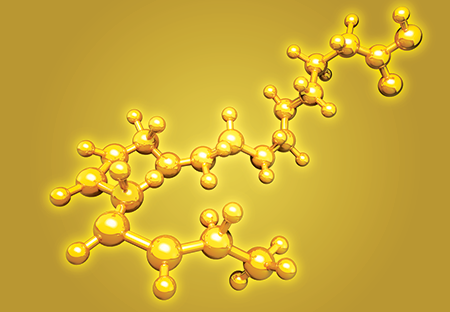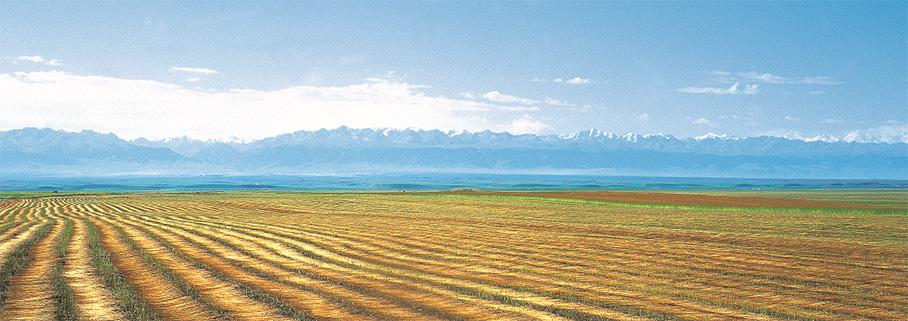Ceaseless human activities have led to the intensification of climate change and the loss of biodiversity, which has a serious impact on human health as well as agriculture and the livestock industry, on which human lives hinge. These impacts, in turn, are threatening the existence of the human race.
Relationship between Flax’s Life Cycle and Biodiversity

Biodiversity is affected by the whole production process of the textile industry spanning from raw material procurement, processing and manufacturing to waste disposal. Flax, the raw material of linen, can be grown using the nutrient cycle within the ecosystem of the farmland and does not require gathering in the wild. It is a sustainable plant-based fibre, and almost no irrigation or the use of herbicides is needed during its cultivation.
Dew-retted fibre flax, the raw material used by Kingdom in its production, is a natural raw material of linen yarn. As the flax used for dew-retted fibre flax mainly grows in cold regions with unique soil and climate, such fabric manufactured from the dew-retted fibre flax has a unique and balanced rain-like colour from the flax stem and does not need to be dyed. Different from warm water retting which may cause pollution as the flax is retted in natural lakes or pools after being harvested, dew-retted fibre flax is fermented and retted with rain, dew and mould by laying the flax stems on flax fields. The dew-retting process can eliminate unpleasant smell and water pollution. What is more, it produces high yield, high quality and more refined and soft fibre. As such, Kingdom has chosen the natural dew-retting and snow-retting techniques to achieve zero pollution in its production.
Being regarded as the “Queen of Natural Fibre”, fibre flax is characterised by a unique physical structure – pectin hypotenuse hole. The capillary action between these holes and the skin allows quick adjustment of skin temperature and delivers excellent temperature adjustment, moisture absorbing and breathing capacities. Furthermore, flax is harmless not only to the human body, but also to the environment as it is naturally degradable.
Based on a study in France about the Life Cycle Assessment of cotton shirt and a linen shirt:
- A linen shirt consumes only 1/4 of the water used for its life cycle compared with that of a cotton shirt
- A cotton shirt causes 6 times more freshwater aquatic ecotoxicity* than a linen shirt.
* The freshwater aquatic ecotoxicitypotential describes the toxic impact that the emitted substances have in the aquatic environment.
Organic Cultivation
1500 meters above sea level at Yili, is by far the world's highest altitude of flax cultivation base. Basin topography at high altitude gives flax cool and moist growing climate; the melt water from Tianshan Mountain glacier and clean rainwater ensures adequate water supply during rapid growth of flax; also fertile and slight acidic soil is more conducive of the growth of flax. Here, winter duration is long without summer, autumn immediately after spring, and more than 2800 hours of sunshine per year, providing good lighting condition during the maturity period of flax. The snow accumulated in winter keeps constant temperature for the soil ready to cultivate high quality flax and insulates against low temperature and pest. This forms a natural protective barrier for the flax field. In addition, clean air and good environmental here determines the produce of best quality of organic flax.

Dew retting flax
Dew-retted fibre flax is a natural raw material of linen yarn, mainly grows in cold regions. The flax is retted in natural lakes or pools after being harvested, dew-retted fibre flax is ferment and retted with rain, dew and mould by laying the flax stems on flax fields. Dew-retting process can eliminate unpleasant smell and water pollution. The pure and pristine natures of flax can be retained, a precious gift from Mother Nature.

As the flax used for dew-retted fibre flax with unique soil and climate, such fabric manufactured from the dew-retted fibre flax has a unique and balanced rain-like colour from the flax stem and does not need to be dyed.